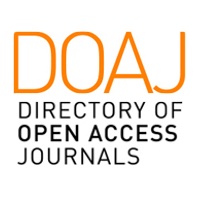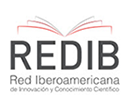INFLUENCIA DEL AFECTO POSITIVO, LA AUTOEFICACIA Y LA SATISFACCIÓN EN EL ENTUSIASMO DE LOS ESTUDIANTES DURANTE LA PRÁCTICA PROFESIONAL SUPERVISADA
DOI:
https://doi.org/10.31639/rbpfp.v15i34.712Palabras clave:
Formación docente, Emociones, Enseñanza y aprendizajeResumen
Este trabajo investigó la interacción entre las experiencias afectivas positivas, las creencias de autoeficacia y la satisfacción de los estudiantes para explicar su nivel de entusiasmo después de la práctica profesional supervisada. La muestra consistió en 63 estudiantes de licenciatura en Ciencias Biológicas. Los resultados revelaron correlaciones positivas y significativas entre el afecto positivo y la autoeficacia, la satisfacción en el trabajo y el entusiasmo de los estudiantes. Además, la autoeficacia se relacionó positivamente con la satisfacción en el trabajo y el entusiasmo. Sin embargo, la correlación entre la satisfacción en el trabajo y el entusiasmo no fue estadísticamente significativa. Estudios previos resaltan la importancia del afecto positivo, la autoeficacia y la satisfacción en el contexto de la práctica profesional supervisada para el bienestar y el desempeño de los estudiantes. Promover experiencias afectivas positivas durante la práctica puede aumentar la autoeficacia, la satisfacción y el entusiasmo de los estudiantes, preparándolos para una carrera docente. Los resultados sugieren la importancia de crear un ambiente de práctica favorable y emocionalmente positivo.
Descargas
Citas
ALHEBAISHI, Safaa Mohammad. Investigation of EFL Student Teachers’ Emotional Responses to Affective Situations during Practicum. European Journal of Educational Research, v. 8, n. 4, p. 1201-1215, 2019. DOI: https://doi.org/10.12973/eu-jer.8.4.1201
ALOE, Ariel M.; AMO, Laura C.; SHANAHAN, Michele E. Classroom management self-efficacy and burnout: A multivariate meta-analysis. Educational psychology review, v. 26, p. 101-126, 2014. DOI: https://doi.org/10.1007/s10648-013-9244-0
ASSAI, Natany Dayani de Souza; BROIETTI, Fabiele Cristiane Dias; ARRUDA, Sergio de Mello. O estágio supervisionado na formação inicial de professores: estado da arte das pesquisas nacionais da área de ensino de ciências. Educação em Revista, v. 34, 2018. DOI: https://doi.org/10.1590/0102-4698203517
BANDURA, Albert et al. Self‐efficacy beliefs as shapers of children’s aspirations and career trajectories. Child development, v. 72, n. 1, p. 187-206, 2001. DOI: https://doi.org/10.1111/1467-8624.00273
BANDURA, Albert. Self-efficacy: toward a unifying theory of behavioral change. Psychological review, v. 84, n. 2, p. 191, 1977. DOI: https://doi.org/10.1037//0033-295X.84.2.191
BANDURA, Albert. The explanatory and predictive scope of self-efficacy theory. Journal of social and clinical psychology, v. 4, n. 3, p. 359-373, 1986. DOI: https://doi.org/10.1521/jscp.1986.4.3.359
BURIĆ, Irena; MOE, Angelica. What makes teachers enthusiastic: The interplay of positive affect, self-efficacy and job satisfaction. Teaching and teacher education, v. 89, p. 103008, 2020. DOI: https://doi.org/10.1016/j.tate.2019.103008
CHEN, Junjun. Efficacious and positive teachers achieve more: Examining the relationship between teacher efficacy, emotions, and their practicum performance. The Asia-Pacific Education Researcher, v. 28, p. 327-337, 2019. DOI: https://doi.org/10.1007/s40299-018-0427-9
DU PLESSIS, E. C.; MARAIS, Petro. Emotional experiences of student teachers during teaching practice: A case study at Unisa. Progressio, v. 35, n. 1, p. 208-224, 2013.
FREDRICKS, Jennifer A.; BLUMENFELD, Phyllis C.; PARIS, Alison H. School engagement: Potential of the concept, state of the evidence. Review of educational research, v. 74, n. 1, p. 59-109, 2004. DOI: https://doi.org/10.3102/00346543074001059
FREDRICKSON, Barbara L. The role of positive emotions in positive psychology: The broaden-and-build theory of positive emotions. American psychologist, v. 56, n. 3, p. 218, 2001. DOI: https://doi.org/10.1037//0003-066X.56.3.218
GARCÍA-LÁZARO, Irene; COLÁS-BRAVO, María Pilar; CONDE-JIMÉNEZ, Jesús. The Impact of Perceived Self-Efficacy and Satisfaction on Preservice Teachers’ Well-Being during the Practicum Experience. Sustainability, v. 14, n. 16, p. 10185, 2022. DOI: https://doi.org/10.3390/su141610185
HARGREAVES, Andy. Mixed emotions: Teachers’ perceptions of their interactions with students. Teaching and teacher education, v. 16, n. 8, p. 811-826, 2000. DOI: https://doi.org/10.1016/S0742-051X(00)00028-7
HONG, Ji Y. Pre-service and beginning teachers’ professional identity and its relation to dropping out of the profession. Teaching and teacher Education, v. 26, n. 8, p. 1530-1543, 2010. DOI: https://doi.org/10.1016/j.tate.2010.06.003
JUDGE, Timothy A. et al. The job satisfaction–job performance relationship: A qualitative and quantitative review. Psychological bulletin, v. 127, n. 3, p. 376, 2001. DOI: https://doi.org/10.1037//0033-2909.127.3.376
JUDGE, Timothy A.; BONO, Joyce E. Relationship of core self-evaluations traits—self-esteem, generalized self-efficacy, locus of control, and emotional stability—with job satisfaction and job performance: A meta-analysis. Journal of applied Psychology, v. 86, n. 1, p. 80, 2001. DOI: https://doi.org/10.1037//0021-9010.86.1.80
KELLER, Melanie M. et al. Teacher enthusiasm: Reviewing and redefining a complex construct. Educational Psychology Review, v. 28, p. 743-769, 2016. DOI: https://doi.org/10.1007/s10648-015-9354-y
KELLER, Melanie; NEUMANN, Knut; FISCHER, Hans E. Teacher enthusiasm and student learning. International guide to student achievement, p. 247-250, 2013.
KUNTER, Mareike et al. Students’ and mathematics teachers’ perceptions of teacher enthusiasm and instruction. Learning and instruction, v. 18, n. 5, p. 468-482, 2008. DOI: https://doi.org/10.1016/j.learninstruc.2008.06.008
KUNTER, Mareike et al. Teacher enthusiasm: Dimensionality and context specificity. Contemporary educational psychology, v. 36, n. 4, p. 289-301, 2011.
KUNTER, Mareike et al. Teacher enthusiasm: Dimensionality and context specificity. Contemporary educational psychology, v. 36, n. 4, p. 289-301, 2011. DOI: https://doi.org/10.1016/j.cedpsych.2011.07.001
LINNENBRINK-GARCIA, Lisa; PEKRUN, Reinhard. Students’ emotions and academic engagement: Introduction to the special issue. Contemporary Educational Psychology, v. 36, n. 1, p. 1-3, 2011. DOI: https://doi.org/10.1016/j.cedpsych.2010.11.004
LIU, Yongmei; XU, Jun; WEITZ, Barton A. The role of emotional expression and mentoring in internship learning. Academy of Management Learning & Education, v. 10, n. 1, p. 94-110, 2011. DOI: https://doi.org/10.5465/amle.10.1.zqr94
LOVE, Jonathon et al. JASP: Graphical statistical software for common statistical designs. Journal of Statistical Software, v. 88, p. 1-17, 2019. DOI: https://doi.org/10.18637/jss.v088.i02
LYUBOMIRSKY, Sonja; KING, Laura; DIENER, Ed. The benefits of frequent positive affect: Does happiness lead to success?. Psychological bulletin, v. 131, n. 6, p. 803, 2005. DOI: https://doi.org/10.1037/0033-2909.131.6.803
MENA, Juanjo; PEINADO, Cristina; HERNÁNDEZ, Inmaculada. Pre-service Teachers’ Self-efficacy Beliefs on Their Role as Teachers During the Practicum. In: Teacher Education as an Ongoing Professional Trajectory: Implications for Policy and Practice. Cham: Springer International Publishing, 2023. p. 71-96. DOI: https://doi.org/10.1007/978-3-031-28620-9_4
MENEZES, João Paulo C. Relação Das Crenças De Autoeficácia Com As Emoções, Estratégias De Enfrentamento E Inteligência Emocional Na Formação Inicial De Professores. Góndola, Enseñanza y Aprendizaje de las Ciencias, v. 17, n. 2, 2022. DOI: https://doi.org/10.14483/23464712.18590
MICHOS, Konstantinos et al. Examining the relationship between internship experiences, teaching enthusiasm, and teacher self-efficacy when using a mobile portfolio app. Teaching and Teacher Education, v. 109, p. 103570, 2022. DOI: https://doi.org/10.1016/j.tate.2021.103570
ROSA, Jeâni Kelle Landre; WEIGERT, Célia; SOUZA, Ana Cristina Gonçalves de Abreu. Formação docente: reflexões sobre o estágio curricular. Ciência & educação, v. 18, n. 03, p. 675-688, 2012. DOI: https://doi.org/10.1590/S1516-73132012000300012
SCHWARZER, Ralf; SCHMITZ, Gerdamarie S.; DAYTNER, Gary T. The teacher self-efficacy scale. 1999.
SELIGMAN, Martin EP. Flourish: A visionary new understanding of happiness and well-being. Simon and Schuster, 2011.
SKAALVIK, Einar M.; SKAALVIK, Sidsel. Motivated for teaching? Associations with school goal structure, teacher self-efficacy, job satisfaction and emotional exhaustion. Teaching and Teacher Education, v. 67, p. 152-160, 2017. DOI: https://doi.org/10.1016/j.tate.2017.06.006
SKAALVIK, Einar M.; SKAALVIK, Sidsel. Teacher self-efficacy and perceived autonomy: Relations with teacher engagement, job satisfaction, and emotional exhaustion. Psychological reports, v. 114, n. 1, p. 68-77, 2014. DOI: https://doi.org/10.2466/14.02.PR0.114k14w0
TROESCH, Larissa Maria; BAUER, Catherine Eve. Second career teachers: Job satisfaction, job stress, and the role of self-efficacy. Teaching and Teacher Education, v. 67, p. 389-398, 2017. DOI: https://doi.org/10.1016/j.tate.2017.07.006
TSCHANNEN-MORAN, Megan; HOY, Anita Woolfolk. Teacher efficacy: Capturing an elusive construct. Teaching and teacher education, v. 17, n. 7, p. 783-805, 2001. DOI: https://doi.org/10.1016/S0742-051X(01)00036-1
WATSON, David; CLARK, Lee Anna; TELLEGEN, Auke. Development and validation of brief measures of positive and negative affect: the PANAS scales. Journal of personality and social psychology, v. 54, n. 6, p. 1063, 1988. DOI: https://doi.org/10.1037//0022-3514.54.6.1063
YOON, Iksang; KIM, Minjung. Dynamic patterns of teachers’ professional development participation and their relations with socio-demographic characteristics, teacher self-efficacy, and job satisfaction. Teaching and Teacher Education, v. 109, p. 103565, 2022. DOI: https://doi.org/10.1016/j.tate.2021.103565
Descargas
Publicado
Cómo citar
Número
Sección
Licencia
Derechos de autor 2024 João Paulo Cunha MENEZES (Autor)

Esta obra está bajo una licencia internacional Creative Commons Atribución-NoComercial-CompartirIgual 4.0.
Los derechos de autor/a pertenecen exclusivamente a los autores. La Revista se publica bajo el derecho de licencia Creative Commons Attribution-NonCommercial 4.0 International (CC BY-NC-SA 4.0), en el que se permite compartir (mediante la reproducción y distribución del material en cualquier medio o formato) y adaptar (remix), alterar y crear material desde el contenido.































